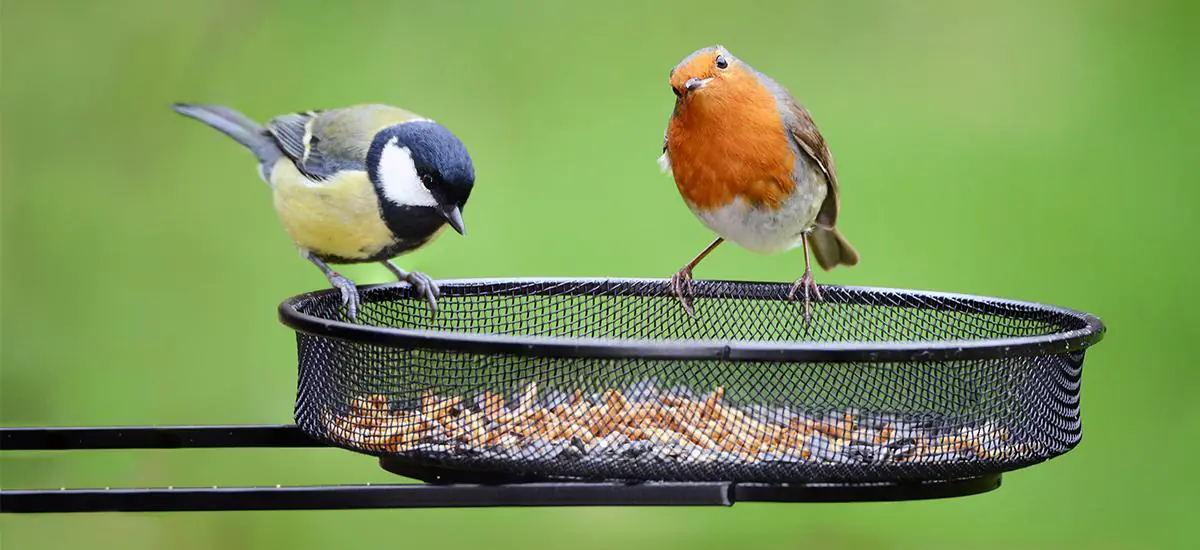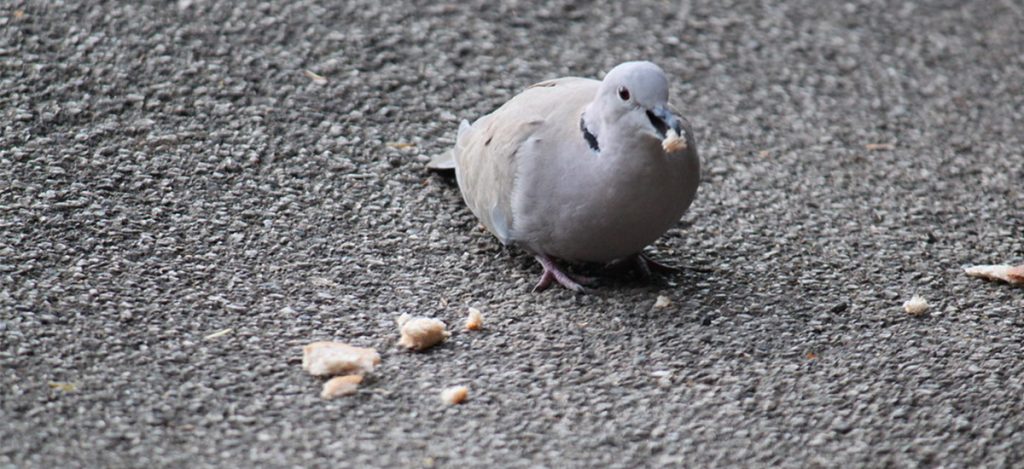10 Foods you Should NOT be Feeding Garden Birds
Every lover of wild birds wants to ensure their feathered friends won't go hungry in their gardens. But health and nutrition are just as important as full tummies, and it's not always the pair go hand in hand. Bad choices in bird feed can lead to malnutrition, disease, and avian obesity, which can hinder birds' responses to predators. Here are 10 foods you should not be feeding garden birds, yet we still see so many people that do! Are you one of them?
Can you feed birds bread?
For many of us, the concept of bird feeding started at a young age when we threw generous handfuls of stale bread and crusts to pigeons in parks. Though bread will quickly fill up wild birds, it doesn't provide them with the necessary protein and fat birds need for their diet, so the bread will act as an empty filler. As the birds will be full of bread, they won't look for other healthy food that provides them with the nutrition they need for optimal health. The same goes for ducks and swans as well. Next time you're down your local duck pond, make sure you have a bag of Duck and Swan food so you can give waterfowl a healthy treat instead of bread.
Spoiled Seed
One of the main reasons why we sing about cleaning bird feeders is because uneaten bird seed will eventually go off. Over time, the seeds will spoil and become contaminated with mould, bacteria and parasites, causing the spread of avian diseases at your feeders. Always ensure your bird food is securely stored in a dry place. Make note of how long it takes for bird food in your feeders to be eaten. If it goes long enough until the food clumps together, moulds, or sprouts, remove the bird food and place less of an amount in the feeder next time.
Pesticides
Avoid feeding your garden birds fruit or seeds that have been treated with pesticides, herbicides, or other potentially toxic chemicals. Even small quantities of these chemicals can be fatal to birds, and poisons may build up in their bodies to cause breeding problems affecting their young. If you are going to offer birds fruit, make sure it's organic. Or, for a more eco-friendly alternative, grow fruit trees in your garden that the birds can feast on.
Crisps
Good fats, like high-quality suet treats, are great for feeding garden birds. Saturated Fats? Not so much. While this popular snack is always on hand to throw out in the garden, it will still be an empty filler choice for birds and not provide them with the proper nutrition. This fatty snack could also lead to obesity in your birds, making it more challenging to escape predators quickly.
Fruit pips and fruit seeds
Whole fruits may seem safe to feed wild birds but be cautious of the seeds and pips. They contain varying levels of a cyanide compound that can cause death in birds. For humans, it would take many fruit seeds and pips to feel the effects of the poison. The smaller-sized garden birds will be affected much more quickly with a lower dose, causing them sickness and eventually death.
Here are some fruit pips and seeds to avoid:
- Cherry pits
- Peach pits
- Plum pits
- Pear seeds
- Apricot pit
- Nectarines pits
- Apple seeds
Milk
Even though milk is more hydrating than water, it's still not the best drink option for your garden birds. Yes, it is always a good idea to put hydrating drinks out for your feathered friends (especially in summer), but not when they are lactose intolerant. Garden birds cannot digest large quantities of milk and cheese. Always put out a regular supply of clean water, and your birds will stay fully hydrated throughout the year. Bird baths are a great way to distribute water, and your feathered friends will use it for bathing as well.
Avocado
It may seem like a random food choice, but many bird enthusiasts like to try avocados with their pet birds and wild birds. All parts of an avocado (the skin, meat, pit, and leaves) contain persin, a toxic component to serval species, including birds. Percin poisoning can cause birds to collapse, feel lethargic, breathe heavily, and eventually die. So best to avoid putting avocados in the garden altogether. On the other hand, humans can safely eat avocados without being affected by persin.
Can birds easy raw meat?
Many UK wild birds are carnivorous, but it doesn't mean you need to give them any raw meat, such as ground meats or meat scraps. These foods will spoil very quickly and grow dangerous bacteria without proper storage. If you want to offer your garden birds a healthy food full of fat and protein, suet treats are a great choice to go for, and birds love it!
Do not feed birds salty foods
While many wild birds can process small amounts of salt without difficulty, large quantities are dangerous. You should avoid putting out salty foods, including crisps, salty peanuts, and bacon. Too much salt can affect the electrolyte and fluid balance of the bird's body, leading to excessive thirst, dehydration, kidney failure, and in the worst cases, death.
Chocolate
Last but not least, for us humans, our beloved chocolate. Though many of us think we can't live without chocolate, birds certainly can. This sweet treat contains theobromine and caffeine, and even a tiny amount will destress the bird's digestive system and affect their heart and breathing. Just 1oz of chocolate can be fatal to a larger bird, so imagine what it will do to smaller garden birds. In this case, sharing isn't caring, so best to keep the chocolate to yourself.


